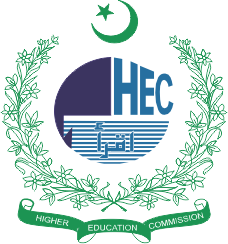Shifting Alliances: Iran-Pakistan Relations in the Aftermath of the Islamic Revolution and Soviet Invasion of Afghanistan
DOI:
https://doi.org/10.63062/trt/2k23a.25108Keywords:
Islamic Revolution, Soviet Invasion, Mujahideen, Geopolitical CicumstancesAbstract
This study investigates the multifaceted relationships that have emerged between Iran and Pakistan in the years following the Islamic Revolution in 1979 and the Soviet invasion of Afghanistan in 1980. This article offers light on the profound geopolitical transformations that have occurred in the region, highlighting how the United States' loss of Iran and the Soviet Union's conquest of Afghanistan significantly affected the balance of power in the region. The study is centered on the developing relationship between Iran and Pakistan, and it takes a journey through historical events such as Iran's backing for the Afghan Mujahideen, the effects of the Iran-Iraq conflict, and the difficulties that arise from different perspectives on Afghanistan. Furthermore, it investigates the socio-cultural components that form the connection between the two countries, particularly in the region of Balochistan. The economic components are subjected to a careful evaluation in this article, which also investigates trade trends and the blocked gas pipeline between Iran and Pakistan. The research comes to a conclusion with strategic recommendations for both countries to improve their bilateral relations in a world that is fast changing. These proposals are discussed in light of the current geopolitical circumstances.
References
Ahmad, M. (2018). Pakistan-Iran Geo-Political environment and the discourse of relations (Lahore: Area Study University of Punjab), 112-132.
Ahmad, M. A. (2017). Snooping into the Belt &Road Initiative: A Comparative Study of Gwadar with Chabahar Port. Journal of the Punjab University Historical Society, 30(2), 87-98. http://pu.edu.pk/images/journal/HistoryPStudies/PDF_Files/9_V-30-No2-Dec17.pdf
Alam, S. (2004). Iran‐Pakistan relations: Political and strategic dimensions. Strategic Analysis, 28(4), 526-545. https://doi.org/10.1080/09700160408450157
Alam, S. (2004). Iran‐Pakistan relations: Political and strategic dimensions. Strategic Analysis, 28(4), 526-545. https://doi.org/10.1080/09700160408450157
Campbell, J. C., & Dann, U. (1988). The great powers in the Middle East, 1919-1939. Foreign Affairs, 67(1), 198. https://doi.org/10.2307/20043753
Hussain, Z., (2004). ‘No way out?’, Newsline (Karachi),
Imtiaz, A. (2019). Pakistan-Iran relations: Economic and political dimensions (Karachi• Oxford University press), 220-222. https://www.iramcenter.org/en/pakistan-iran-relations-economic-and-political-dimensions_en-1354
Kux, D. (2001). The United States and Pakistan, 1947-2000. Johns Hopkins University Press.
Rafique, N. (2016). Prospects of Pakistan-Iran Relations: Post Nuclear Deal. Www.prdb.pk. Strategic Studies 36(3), 1- 20. https://www.prdb.pk/article/prospects-of-pakistan-iran-relations-post-nuclear-deal-5794
Sheikh, F., & Price, G. (2001). Pakistan: Regional Rivalries and local impacts (London: Woodrow Wilso Press, 2001), 78. https://www.files.ethz.ch/isn/154089/RP2012-12-Pakistan-regional-rivalries-local-impacts_web.pdf
Zahab, M. A. (2002). ‘The regional dimension of sectarian conflicts in Pakistan’, ed. C. Jaffrelot, Pakistan: Nationalism Without a Nation? (Zed Books: London, 2002), 115.





